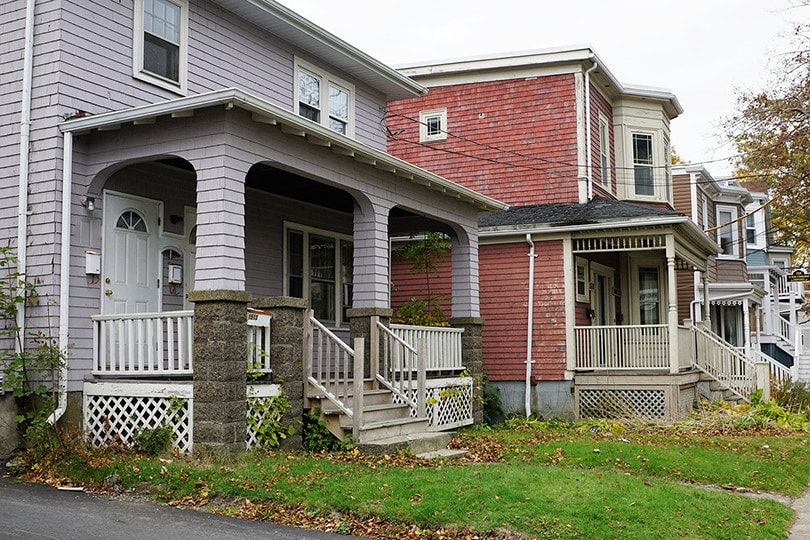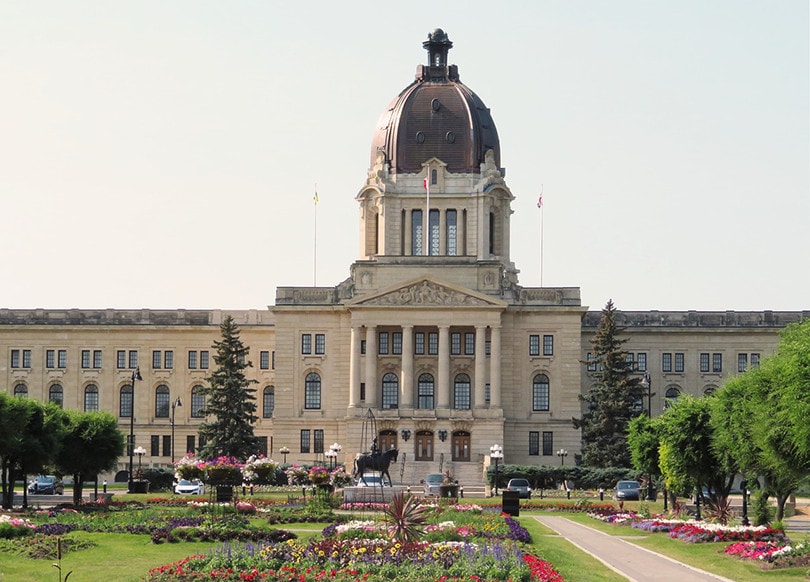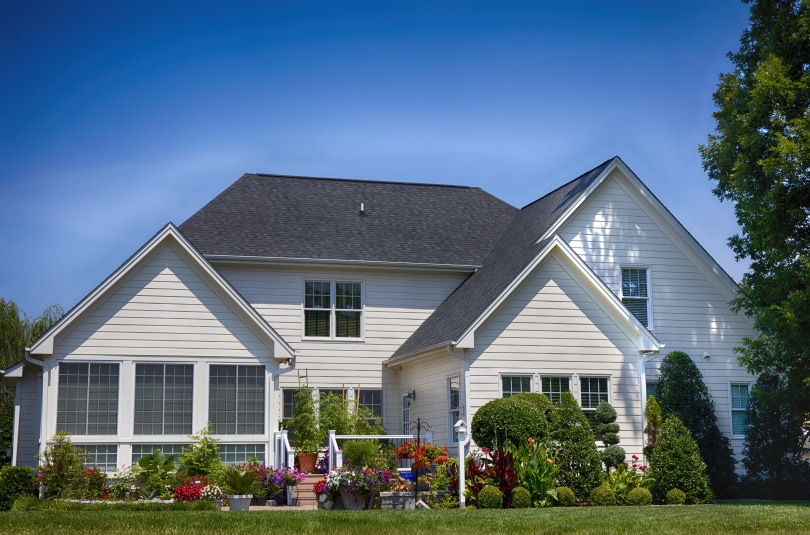Why Are Houses So Expensive In Canada? 6 Reasons
-

- Last updated:

Canada has recently become one of the most expensive places to buy a home. Housing costs have continued to rise exponentially year after year, leading to historically high prices across the country. The average price of a home in Canada has rocketed to over $710,000, which is nearly double that of the United States.
These costs have put a huge strain on the Canadian markets and have caused housing to become a point of national debate. So, why are houses in Canada so expensive? Several factors are contributing to these rising costs. Here are six main reasons why houses in Canada are so incredibly expensive.
Why Are Houses So Expensive In Canada? 6 Reasons
1. Stricter Government Regulation

The building regulations in Canada are far stricter than in most places in the United States. More burdensome regulations mean fewer homes get built per year. Regulation can also slow down the building process and lead to higher costs during construction. All those factors add up to higher prices overall. For example, the National Building Code of Canada requires specific energy efficiency ratings for buildings that will be occupied during the winter months.
Many of Canada’s houses are built in urban city centers and suburbs around the nation’s largest cities. Builders are not only beholden to national building regulations but also local codes. A builder trying to build a home in urban Toronto will face local and federal rules about where, how, and when a home can be built. This overlapping jurisdiction slows construction and raises costs.
2. Foreign Investment
Hot markets, housing or otherwise, attract investors. Canada has a very liberal policy when it comes to outside investment. That is good for business in many cases, but recently it has been putting a strain on the housing market. Foreign investors are coming into Canada and buying up real estate with the express purpose of redeveloping it or simply holding it to make a profit.
When an investor’s goal is to boost profits, it leads to higher prices. It is the same when US house flippers enter a hot housing market and begin buying up all of the stock. It causes the supply to drop, and the supply won’t come back online until it is at a profitable price for the investors.
This flood of foreign money and buyers into Canada’s housing market has caused some government officials in Canada to consider a two-year ban on all foreign investment in the housing market. This drastic idea shows how much of an impact foreign real estate investors have had on the housing market in Canada.
3. Increase in Immigration

Canada has the eighth-highest number of immigrants in the world despite having a relatively small population. One in five Canadians is foreign-born, which is one of the highest rates in the modern world. Canada has a long history of being friendly to immigrants, but that open-door policy has led to higher housing costs.
High rates of immigration stress the housing supply by adding more people to the area. In areas where immigration rates are low, builders can project and predict growth trends to stay ahead of the curve. It is hard to make those projections when immigration is a factor.
The Canadian government is not mandating where new citizens are supposed to live, so predicting where the next wave of immigrants will live is a challenge. Getting an unexpected spike in immigrants can quickly boost demand and reduce supply in certain markets, which, in turn, leads to price hikes.
4. High Rates of Urban Living
Over 80% of all Canadians live in urban areas as opposed to rural areas. Although Canada is the world’s second-largest country by area, most of the urban areas in Canada are located along the US-Canada border. Much of Canada’s vast northern regions remain sparsely populated. This demographic feature has concentrated most Canadian homeowners along a narrow stretch of land in dense urban centers such as Toronto, Vancouver, and Montreal.
Wherever there is a high concentration of buyers looking in the same area for the same types of homes, it drives up demand, which drives up prices. Since four out of every five Canadians are looking for homes in the same areas, it puts a lot of pressure on the market. This market pressure has led to an explosion in home prices in Canada.
5. Low Housing Supply

All of these policies have collectively led to a historically low supply of houses on the market. A low supply leads to more people fighting for fewer homes, and the competition drives up prices and often forces out the poorer party over the wealthier party. This cycle of wealthy buyers squeezing out average citizens also drives up costs because the only people with a chance in the open market are wealthier than average buyers.
A low supply is often fixed by decreasing regulations or moving into untapped areas with more potential for new land development. Canada has a problem on both of these fronts. Since most of the demand is centered around the same areas, there is not a lot of undeveloped land to tap into. Secondly, Canada has shown no signs of wanting to decrease regulations or lower taxes.
Due to these reasons, the problem of supply will persist. Perhaps they will ban foreign investment in the future to try and reel in the supply problems, but that change has yet to be implemented.
- See Also: How Many Homeowners Are There in the US?
6. Higher Housing Demand
The high demand increases the supply problems. Due to the high quality of life and low crime rates, Canada is a desirable place to move. Canada’s free immigration policy allows people to move to Canada very easily. These factors, coupled with the investors looking to make a quick buck, have strained Canada’s markets to the breaking point. Multiple parties are on all sides vying for the same small number of houses.
Up-and-coming generations of Canadians are looking to buy their first home, and expanding families are looking to move into bigger houses. Investors are looking to flip homes for profit. Immigrants are looking to buy their first homes after arriving in Canada. Then there are wealthy and rural Canadians looking to move into the most desirable housing markets. All this demand is flooding the market with very little supply, so prices are hitting historical highs.
- See Also: 12 Hottest Cities in Canada

Are Housing Prices In Canada Going to Stay High?
Yes. Projections have Canada’s housing prices remaining at high levels for the foreseeable future. That is because many of the factors contributing to the seller’s market do not look like they will abate. Supply looks to remain low. Canada is still a popular place to immigrate to.
The government has made some noise about implementing sweeping changes and rules to try and alleviate the problems, but nothing notable has been passed. Barring something unforeseen, Canada will remain one of the world’s hottest housing markets for years.
Where Are The Most (And Least) Affordable Places To Live in Canada?
Despite the sticker shock accompanying Canada’s average homes, there are still affordable places to live in Canada that do not require you to move out into the bush. Edmonton, Alberta, has an average home price of $370,000, which is more in line with US prices than the rest of Canada.
Winnipeg, Manitoba, also has average home prices hovering around $350,000. If you are looking for a taste of New England without New England prices, Halifax, Nova Scotia, has homes for $400,000. These areas are urbanized and offer prices that are almost half that of other Canadian metro areas.
These seemingly ordinary prices in these areas also point to a trend in the opposite direction. Home prices in Toronto and Vancouver have inflated to astonishing levels. The average cost of a home in Toronto is over a million dollars. Vancouver was recently named the second most expensive city in North America.
In Conclusion
The fact is that homes in Canada are pricey. The astronomical prices are due to a confluence of factors that have come together to form the perfect storm in the real estate market. As prices continue to climb, there doesn’t seem to be any end in sight. If you are looking for an affordable place to live, Canada might not be your best bet right now.
- See also: 12 Home Staging Statistics in Canada
Featured Image Credit: photosforyou, Pixabay
Contents


